Apply emotional intelligence to promote team performance
Enablers
- Support and recognize team member growth and development. (ECO 1.3.2)
- Assess behavior through the use of personality indicators. (ECO 1.14.1)
- Analyze personality indicators and adjust to needs of key stakeholders. (ECO 1.14.2)
Deliverables, and Tools

Emotional Intelligence
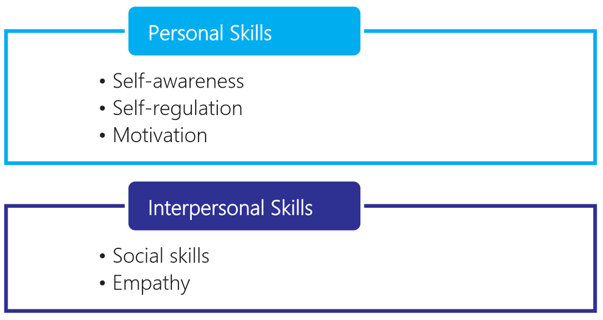
Self-AwareQness Elements
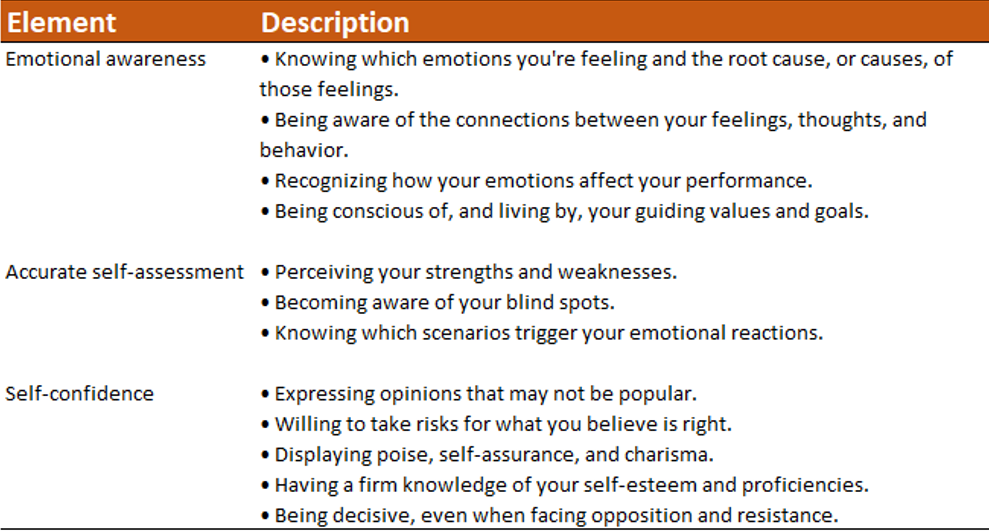
Self-Regulation Elements
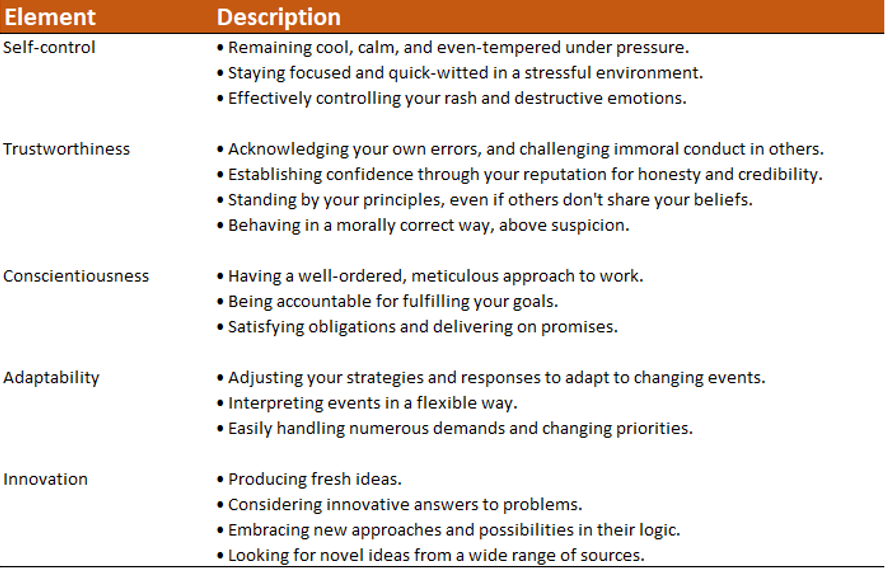
Motivation Elements
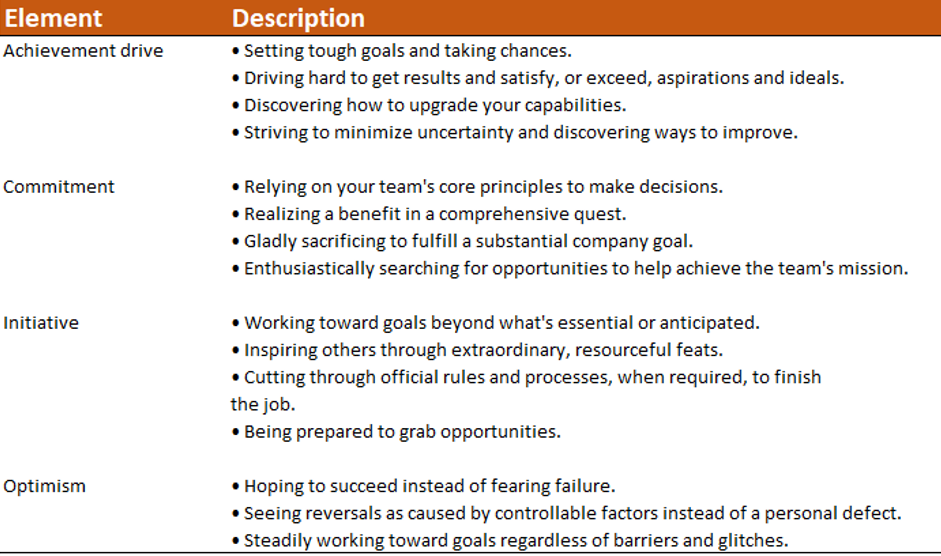
Social Skills Elements
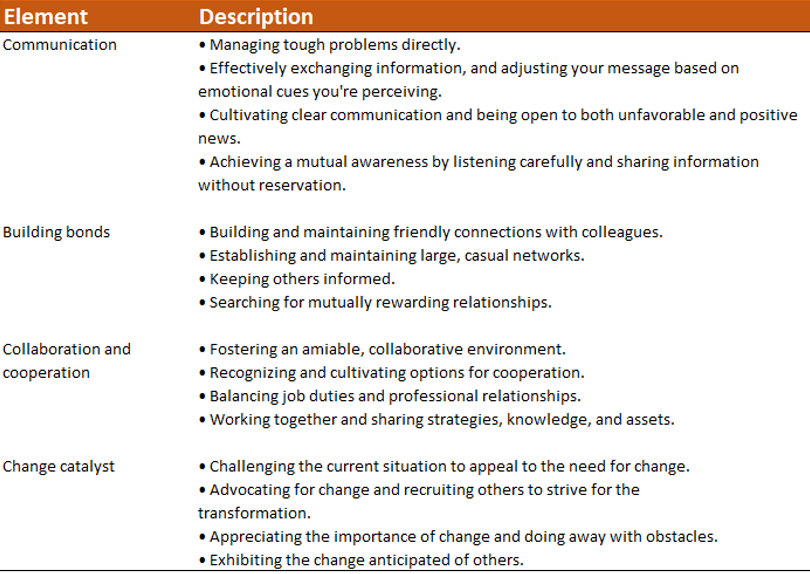
Social Skills Elements
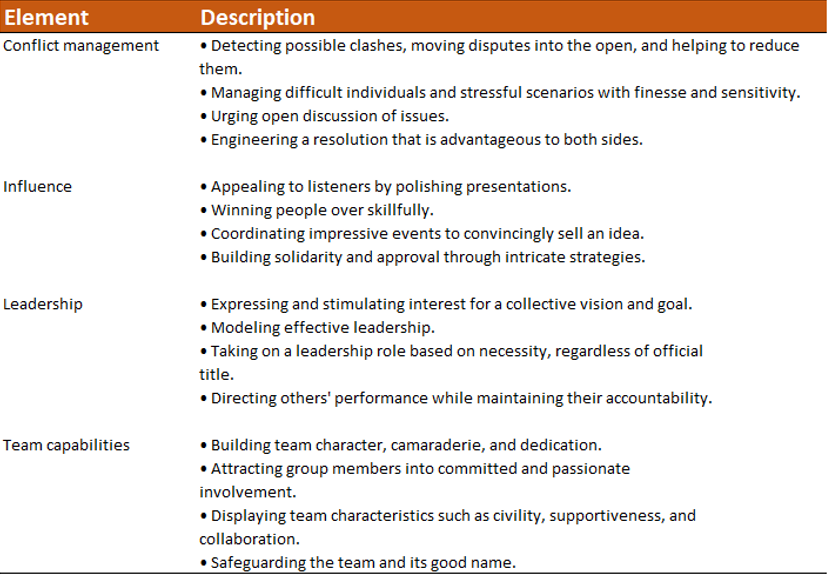
Interpersonal and Team Skills
- Active listening
- Communications styles assessment
- Emotional intelligence
- Influencing
- Motivation
- Nominal group technique
- Political awareness
- Transparency
Active Listening
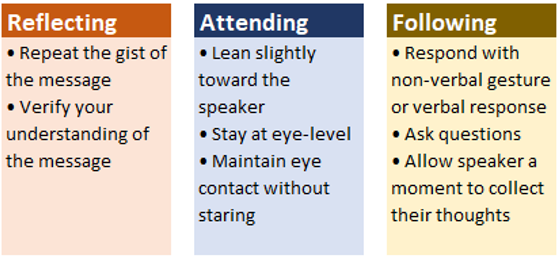
Personality Profile Assessments
- Theory of Psychological Types by Carl Jung
- Myers-Briggs Type Indicator (MBTI) by Katherine Cook Briggs and Isabel Briggs Myers
- DiSC Assessment Model by William Moulton Marston
- True Colors Methodology by Don Lowry
- Social Style Model by TRACOM
- Whole Brain Thinking by Ned Herrmann
Organizational Theory
Organizational theory is the study of how people, teams, and organizations behave.
Purpose of organizational theory
- Maximize efficiency and productivity
- Solve problems
- Motivate people
- Meet stakeholder requirements
Common organizational theorists
- Maslow’s Hierarchy of Needs
- McGregor’s Theory X and Theory Y
- McClelland’s Achievement Theory
- Herzberg’s Motivation Theory
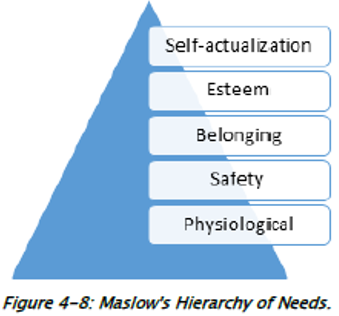
Guidelines for Building Emotional Intelligence with Key Stakeholders
- Recognize your own emotions and behaviors.
- Assess how your emotions, attitudes, actions, behaviors control you.
- Observe how your emotions affect those around you.
- Take note of physical nonverbal cues of others, such as a shrug or smile.
- Interpret those cues against the context, situation, and your emotions.
- Remain mindful of the emotions of others.
- Mirror the behaviors of others when suitable to become better connected.
- Practice controlling or changing your emotions to better suit the situation.